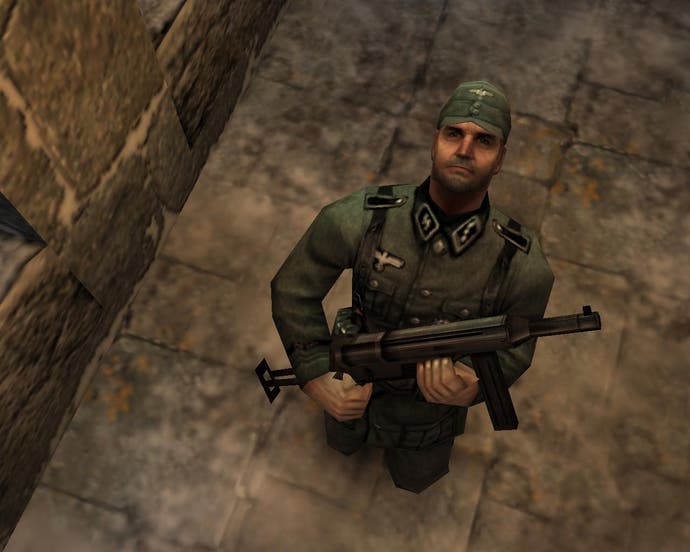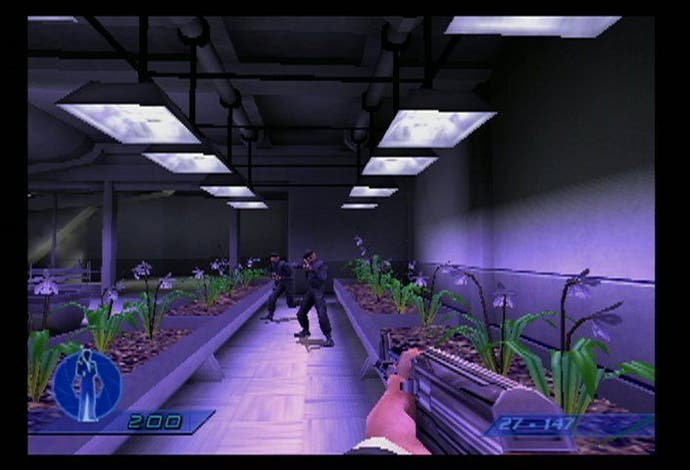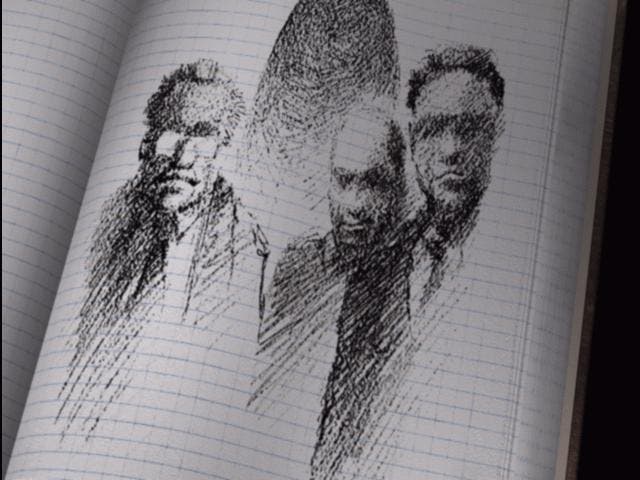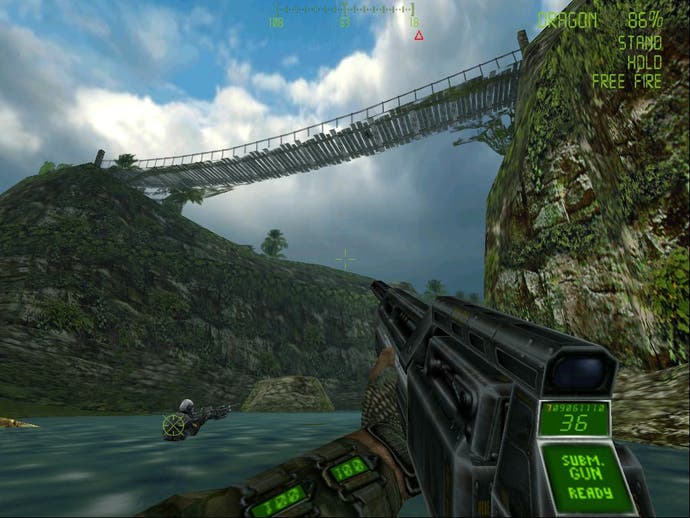What's The Story
Article - script consultant Piers Blofeld takes a look at the use of storylines in games
Stories have an uneasy role in the game development process, often tacked on at the last minute to satisfy a tick box in the game design document. Graphics - check! Soundtrack - check! Plot - check! It shouldn't be this way...

Flesh And Bones
Developer X is embarking on its new project. The last title it released is nearing completion, and it's time to focus on the next game. One of the lead coders had a fantastic idea at the weekend, when he was crashed out on booze and dope. He puts it to the rest of the board. "Imagine", he begins, "a third person adventure where the hero is a Knight Templar in fourteenth century France battling the demonically possessed forces of the Inquisition. It's going to be cool." Everyone agrees. A green-light is given. Design documents are drawn up in preparation for pitching it to selected publishers. Attention - rightly and crucially - is focused on gameplay and visual style. Artists set to work, characters are designed. Sir Phillip D'Aubigny is to be our granite jawed hero and Sir Palomides his great friend, destined to die in the second act. The villain is Cardinal Dragan, the Grand Inquisitor himself - tall and cadaverous, looking a bit like Christopher Lee with a fourteen vodka and red bull hangover. The excitement begins to mount; it all feels like it's beginning to take shape. The game designers have come up with some gameplay developments which will look great on the back of the box: Sir Philip's familiar, a raven called Crac, allows him to see things from a distance and make more tactical decisions. It's neat, it works, it's original. The only thing that needs fleshing out is the story. This is where it begins to go wrong.

Character Development
Sir Philip D'Aubigny is a Knight Templar in 14th century France. The Templars are being persecuted by the inquisition, and Sir Philip is particularly sought because he accidentally knows the demonic truth about the inquisition and its leader Cardinal Dragan. The Cardinal sends his men to get Philip, but they botch the job and kill his father. Philip vows revenge and sets off to seek out and confront the Grand Inquisitor, aided by his friend Sir Palomides. After many adventures he battles the Cardinal and kills him, thereby satisfying personal honour and saving France from a thousand years of demonic rule. That's a pretty cool story isn't it? No. Noooo! Here's why. It is a pretty cool set up, but it is not a story. There is no sense of who these people are. Stories are about character, and here we don't have any characters. What we do have are the spaces in which to insert the characters, which is a start. We also have an exciting situation. Both good things, but not a story. Stories are about psychological action, not physical ones. What makes a film like Men In Black work so well - aside from the fantastic action sequences and the wittily worked out universe - is that it generates some real heat from the emotional development of both the Tommy Lee Jones and Will Smith characters. Without that the film would become meaningless. Mechanical. Inhuman. The choices they make - to re-enter the world and to leave the world behind respectively - are things we can do. We can't battle alien criminals, but we can make decisions about how we feel about the world we live in. Ultimately, the film is about honour and the need for love, cunningly wrapped up in an exciting action environment.

Lights, Camera, Action
This is probably the crucial moment in the development of the game's story and script. The game developers have come up with a good idea and they feel they have a story. They certainly have lots of actions that look like a story. Enough for them to convince the publisher. The funding comes on stream and the game goes into full development. Levels are worked out, characters are designed and animated. Monsters created. All the immense range of properties that are needed to make a game, the most complicated collaborative art form there is. But bang in the middle of this is a hole. No story and no script. Somewhere down the development line this has to be addressed. At the moment it's often too late in the day - usually something like two-thirds of the way into the development process, after the level progression has been established, the monsters and characters designed, battle effects and puzzles worked out. After all of this has been done, a writer will finally be brought in. Now I don't care how good the writer is - and it must be said that generally we are not talking Oscar winners here - but there is going to be almost nothing they can do. Because by this stage the story has to fit what is already there.

Tacky
And lo and behold the game is released, the graphics and gameplay are praised, but the story is attacked for being cliché ridden and seemingly 'tacked on as an afterthought'. Is this surprising when few games are treated to a proper synopsis or complete character profiles outlining their personalities, their motivations and how they will change, and what they will learn? In an ideal world, it would all be so different. A story should be allowed to grow with the game rather than be forced into existing level structure. Plots shouldn't be treated as extras, merely there to lead the player from one section to another. They should be integral elements of all but the most basic games. With a story to match its impeccable graphics, exciting gameplay and pounding score, our game might have turned the corner and gone massive; become not just a title with some good reviews and positive feedback from the public but a genuine hit. Gamers may not be aware of why they like stories, but they do know that they like to be immersed. And that's what a good story is all about.
Piers Blofeld is co-founder and managing director of Turning Point, a script writing consultancy targeting the games industry.
